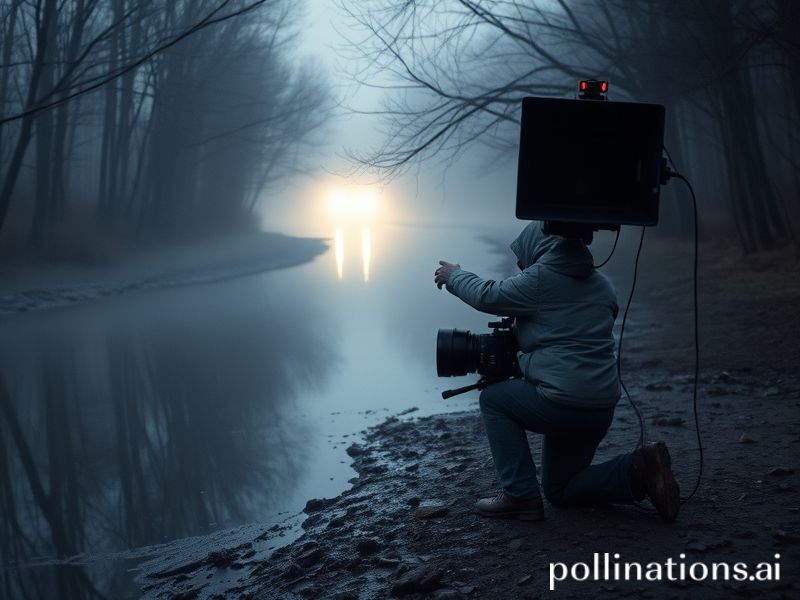coldwater itv
Coldwater ITV: The Streaming Platform That Made the Arctic Circle Trending
By the time the first teaser trailer for Coldwater ITV dropped, half the planet was already doom-scrolling through a heatwave and the other half was busy stockpiling tinned beans for the next geopolitical plot twist. Into this planetary fever dream marched a modestly funded British-Scandinavian streaming service, promising “television for the thermally disillusioned.” The tag line read: “Watch cool stories while the world burns.” Naturally, it went viral.
Coldwater ITV is, on paper, a niche outfit: a joint venture between a bankrupt former cable channel in Hull and a Tromsø-based production house that previously specialized in slow-TV footage of glaciers sighing. Yet within six months it has amassed 42 million subscribers from Lagos to Lima, essentially by weaponizing our collective climate anxiety into bingeable content. Its flagship series—Arctic Noir classics like “Detective Blomqvist Thaws a Corpse” and the reality show “Ice Barons,” in which contestants build five-star resorts on drifting ice floes—serve the same psychological function that Roman circuses once did: distract, numb, and occasionally provide a moral alibi. After all, who needs carbon offsets when you can stream a documentary about whale-song preservation in 4K?
The genius, if we’re being cynically polite, lies in the platform’s geo-targeted temperature algorithm. Log in from Delhi at 46 °C and the interface automatically suggests “Fjord Meditation Loops” and “Murder in Svalbard.” Log in from Chicago at –20 °C and you get “Tropical Crime Dramas” set in sweaty Belizean back alleys. It’s schadenfreude as a service, delivered with Nordic minimalism and just enough British self-loathing to feel authentic.
Global investors, ever allergic to nuance, have taken note. Singaporean sovereign-wealth funds now jostle with Qatari venture capitalists for a slice of the permafrost pie. Even Netflix—still busy green-lighting eighty-seven new superhero series nobody asked for—has reportedly tabled a merger offer, presumably hoping to rebrand Coldwater as “Netflix Below Zero” before the actual planet catches up with the marketing. The UN, not to be outdone, has floated the idea of using the platform for PSAs, which means your next true-crime binge may pause so a deadpan Inuit elder can remind you that the ice shelf you’re romanticizing will be gone by the time the credits roll. Nothing punctures suspense like existential dread with subtitles.
Of course, the real Coldwater gold rush is happening off-screen. Icelandic data centers—cooled naturally by glacial runoff—are suddenly the hottest real-estate play since Dubai discovered air-conditioning. Chinese shipping firms are rerouting container vessels through the newly ice-free Northern Sea Route just to shave two weeks off delivery times, while Russian troll farms allegedly use Coldwater’s comment sections to test-run new disinformation memes: “Actually, polar bears prefer open water.” The platform’s own carbon footprint is, predictably, swept under the (rapidly melting) rug; executives prefer to highlight their purchase of “future ice credits,” a financial instrument so abstract it may soon be traded next to bitcoin.
Meanwhile, ordinary viewers worldwide develop strange, parasocial relationships with the landscape itself. A barista in Melbourne leaves her phone streaming Coldwater’s “24-Hour Aurora Cam” as a night-light. Pensioners in Naples cancel Mediterranean cruises because bingeing “Nordic Noir” feels more “authentic.” A teenager in Lagos builds a micro-influencer empire rating which Scandinavian detective has the most emotionally unavailable stare. Somewhere in the algorithm, a line of code notes that humanity has begun to fetishize its own demise provided it’s shot in moody teal-and-orange.
Conclusion? Coldwater ITV is less a streaming service than a planetary mood ring: it changes color depending on how terrified we are. In an age when the nightly news resembles a disaster reel and hope itself feels like a subscription tier, the platform offers a paradoxical comfort: the colder the content, the warmer the viewer feels. For a monthly fee, you too can watch the world freeze from the safety of your sofa—right up until the sofa floats away.







